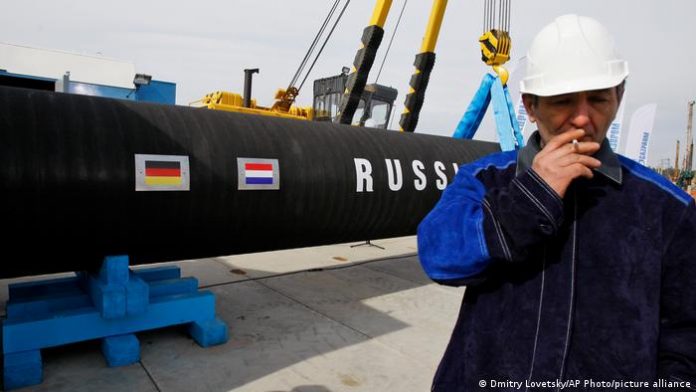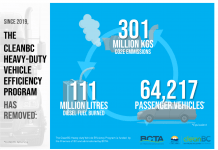
Before Russia’s forces invaded Ukraine, Russia provided one out of every 10 barrels of oil the world consumed. But as World customers shun Russian crude the global oil market faces its greatest turmoil since the 1970s. Extremely high World energy prices will probably last as long as the war goes on, as there are few alternatives to quickly replace Russia’s exports of roughly five million barrels a day.
WHO IS STILL BUYING RUSSIAN OIL?
BULGARIA
Neftochim Burgas refinery, owned by Russia’s Lukoil could use 100% non-Russian crude, if need be, up from 40% currently, a government official said.
CHINA
China is the second-largest Russian oil importer after the European Union, and the IEA says seaborne shipments could even increase. Petro-Logistics, which monitors oil production, is seeing more Russian crude heading to China.
EUROPEAN UNION
The 27-member bloc, which relies on Russia for 40% of its gas and 27% of its crude imports, is split over curbing Russian intake but a plan to ditch Russian fossil fuels over the longer-term is expected by the end of May.
FRANCE
Russian crude oil accounted for 9.5% of total imports in 2021, but the French Association of Petroleum Industry (Ufip) said alternative supplies can be found, adding it is already moving away from Russian diesel.
GERMANY
Russian crude accounts for about 14% of intake at Germany’s largest refinery, Miro. .
Germany’s PCK Schwedt refinery, 54% owned by Rosneft, is fed via the Druzhba pipeline, as well as the landlocked Leuna refinery, majority owned by TotalEnergies
HELLENIC PETROLEUM
Greece’s biggest oil refiner said Russian crude accounted for about 15% of its feed in the second half of 2021 but can be replaced. It has already secured additional supplies from Saudi Arabia.
HINDUSTAN PETROLEUM
India’s state refiner bought 2 million barrels of Russian Urals for May loading, according to trading sources.
INDIAN OIL
India’s top refiner bought 3 million barrels of Urals for May delivery, trade sources said.
ISAB
Italy’s largest refinery, owned by Swiss-based Litasco SA, which is controlled by Lukoil, was working as normal as of March 4. It processes various crudes.
MOL
The Hungarian oil group says it continues to be supplied by the Druzhba pipeline. Prime Minister Viktor Orban has repeatedly opposed sanctions on Russian oil and gas.
NETHERLANDS
Neither the Dutch government nor Rotterdam Port have banned Russian oil. Around 30% of the oil that goes through Rotterdam is Russian. Around 20 million tonnes of Russian oil products go through the port annually.
PKN Orlen
Poland’s largest refiner has said it is buying Russian crude for its refineries in Poland, Lithuania and the Czech Republic, but was prepared for “any scenario”, including a complete suspension of Russian supply.
TURKEY
Turkey has no plans to stop buying Russian crude and related products. It opposes sanctions on Moscow. Tupras is the largest refiner in Turkey.
WHO HAS STOPPED BUYING RUSSIAN OIL?
AMPOL
The Australian refiner says it has not bought Russian crude oil or products since the conflict started.
BP
The British oil major, which is abandoning its stake in Rosneft, will not enter into new deals with Russian entities for loading at Russian ports, unless “essential for ensuring security of supplies”.
BRITAIN
Britain said it would phase out imports of Russian oil by the end of 2022.
CANADA
Canada has said it will ban Russian crude imports and is also looking into banning refined products. It has not imported Russian crude oil since 2019, but in 2021 bought naphtha, diesel and gasoline.
CEPSA
The Spanish firm owned by Abu Dhabi state fund Mubadala and private equity firm Carlyle, has stopped buying Russian crude, natural gas and oil products and doesn’t expect its position to change in the foreseeable future.
ENI
The energy group, 30.3% owned by the Italian government, is suspending purchases of Russian oil. No Russian crude will be used at Germany’s Bayernoil refinery, which both Eni and Rosneft have stakes in.
EQUINOR
Norway’s majority state-owned energy firm has stopped trading Russian oil as it winds down its operations in the country.
GALP
The Portuguese oil and gas company has suspended all new purchases of petroleum products from Russia or Russian companies.
MAERSK
The Danish shipping group has stopped buying Russian oil for its vessels. read more
NESTE
The Finnish refiner has Russian oil contracts lasting until the end of the year, but is not making any new supply agreements. read more
OMV
The Austrian oil and gas firm has said it is not refining any Russian crude grades in its European refineries and has no intention to do so in the “near future”.
PREEM
Sweden’s largest refiner, owned by Saudi billionaire Mohammed Hussein al-Amoudi, has “paused” new orders of Russian crude, which accounted for around 7% of its purchases, replacing it with North Sea barrels.
REPSOL
The Spanish firm has stopped buying Russian crude oil in the spot market.
RWE
The German utility said it would stop new supply deals for Russian gas or oil.
SHELL
The world’s largest petroleum trader will stop buying Russian crude and phase out its involvement in all Russian hydrocarbons.
TOTALENERGIES
The French company has stopped buying oil from Russia, although one of its landlocked refineries in Germany continues to receive Russian crude by pipeline.
Switzerland – VARO ENERGY
The Swiss refiner, which owns the Cressier refinery in Switzerland and has a 51.4% share in Germany’s Bayernoil refinery, said it had not entered into new Russian crude deals since the invasion, and wasn’t planning to, while its previous contracts had expired.
AuVIVA ENERGY
The refiner, which operates in Australia under the Shell brand, has stopped buying Russian crude.
UNITED STATES
The United States, the world’s biggest oil consumer, imposed a wide ban on Russian oil and gas imports on March 8.
The bulk of Russia’s 11.3 billion-barrels-a-day production in January 2022 was crude oil (10 million barrels a day) according to the IEA. Refined oil products accounted for 960,000 barrels and liquid natural gas 340,000 barrels a day.
Although ranked third among oil producing nations, the IEA says that, in terms of all oil products, Russia is the world’s largest exporter to global markets and the second-largest crude oil exporter after Saudi Arabia.
Below are the 15 countries that exported the highest dollar value worth of crude oil during 2020.
Saudi Arabia: US$113.7 billion (17.2% of exported crude oil)
Russia: $72.6 billion (11%)
Iraq: $50.8 billion (7.7%)
United States: $50.3 billion (7.6%)
United Arab Emirates: $47.9 billion (7.2%)
Canada: $47.6 billion (7.2%)
Kuwait: $28.3 billion (4.3%)
Nigeria: $25.2 billion (3.8%)
Kazakhstan: $23.7 billion (3.6%)
Norway: $22.7 billion (3.4%)
Angola: $20.2 billion (3.1%)
Brazil: $19.6 billion (3%)
United Kingdom: $16.1 billion (2.4%)
Oman: $15 billion (2.3%)
Mexico: $14.9 billion (2.2%)
By value, these listed 15 countries shipped 85.9% of globally exported crude oil in 2020.





















